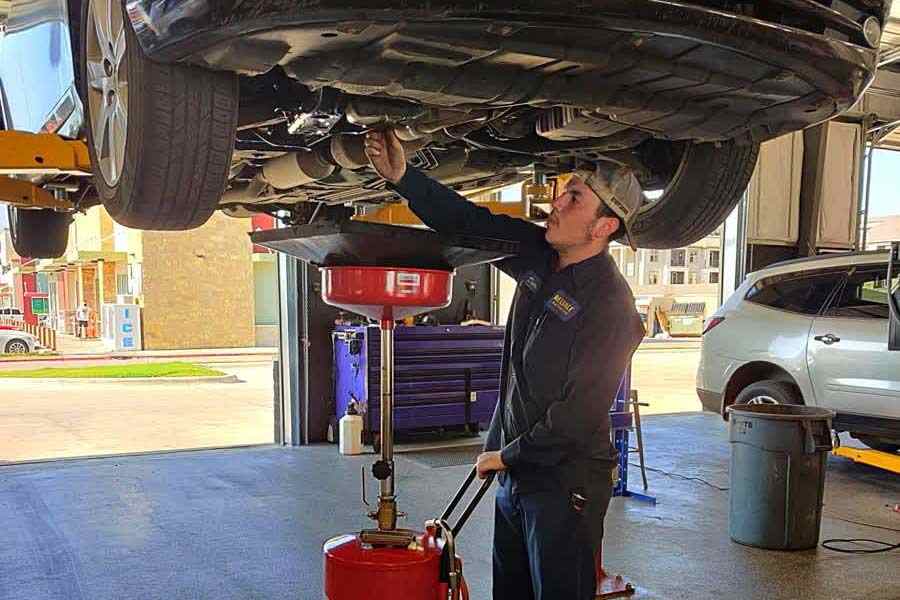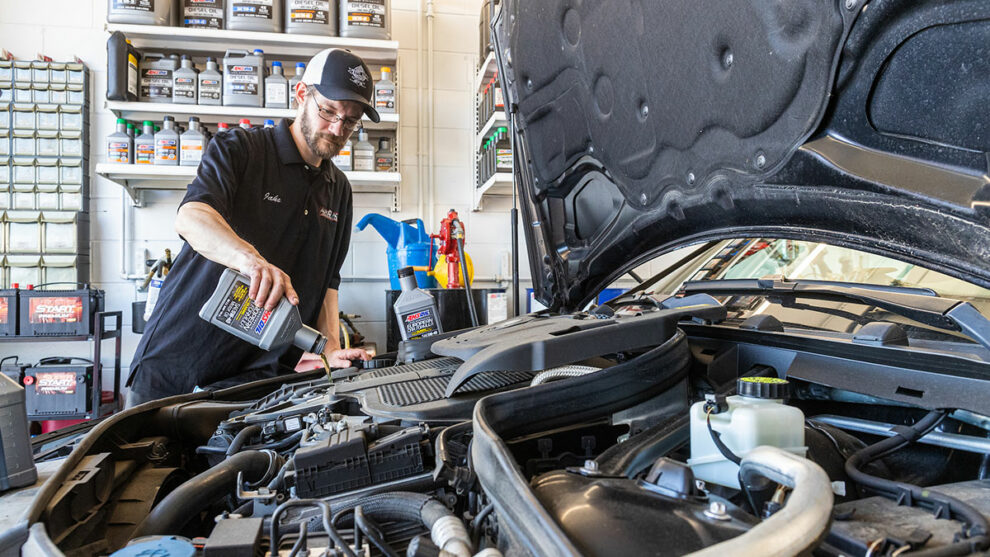Changing your vehicle’s oil might seem intimidating at first, but with proper preparation and technique, anyone can perform this essential maintenance task like a professional. Professional mechanics share that proper oil changes not only save money but also provide valuable insight into your vehicle’s overall condition. Understanding the complete process helps ensure successful service while building confidence for future maintenance tasks.
Safety First Fundamentals
Professional technicians emphasize that proper safety practices prevent injuries during oil changes. Working on level ground provides essential stability, while quality jack stands ensure safety during under-vehicle work. Warm but not hot engines allow complete drainage while preventing burns. Understanding proper lifting points prevents vehicle damage during elevation.
Gathering Essential Equipment
Successful oil changes require proper preparation. Quality drain pans prevent messy spills, while proper wrenches ensure filter removal without damage. Fresh oil and filters matched to vehicle specifications prevent problems, while disposal containers enable proper recycling. Having all materials ready before beginning prevents interrupted service.
Proper Vehicle Preparation
Professional mechanics always verify engine temperature before beginning. Parking on level ground enables accurate fluid measurement, while proper support points ensure stable elevation. Locating drain plugs and filters before lifting saves time while ensuring proper tool selection. Understanding proper parking brake and wheel chock use prevents unexpected movement.

Drainage Technique
Proper drain plug removal prevents thread damage. Professional technicians recommend checking drain plug condition during removal, replacing damaged plugs or washers as needed. Positioning drain pans properly catches all fluid while preventing spills. Understanding proper drain time ensures complete old oil removal.
Filter Fundamentals
Oil filter replacement requires specific techniques. Professional mechanics recommend lubricating new filter gaskets while ensuring proper tightness. Understanding filter mounting position prevents installation problems. Double-checking filter security prevents leaks during operation.
Clean Installation Practices
Maintaining cleanliness during service prevents contamination. Professional technicians emphasize cleaning drain plug areas and filter mounting surfaces before reassembly. Understanding proper drain plug torque prevents both leaks and thread damage. Verifying filter gasket removal prevents double-gasket problems.
Proper Oil Selection
Using correct oil specifications ensures proper engine protection. Professional mechanics emphasize checking both oil weight and quantity requirements in owner’s manuals. Understanding oil quality differences helps make informed selections. Verifying oil compatibility prevents expensive engine damage.
Filling Technique
Proper filling prevents overfilling problems. Professional technicians recommend adding oil incrementally while checking levels between additions. Understanding proper dipstick reading ensures accurate measurement. Allowing settlement time provides accurate level verification.
Final Checks Matter
Professional mechanics always verify work quality before completion. Starting engines without excessive speed allows proper oil circulation, while checking for leaks ensures proper assembly. Understanding normal engine sounds during startup helps identify potential problems. Proper documentation records service details for future reference.
Tool Cleanup Importance
Proper tool cleaning extends equipment life. Professional technicians emphasize proper rag disposal and drain pan emptying after service. Understanding proper oil disposal methods ensures environmental responsibility. Regular tool maintenance ensures readiness for future services.
Maintenance Tracking
Recording oil change details helps track maintenance intervals. Professional mechanics recommend noting mileage, date, and materials used during service. Understanding proper maintenance intervals ensures timely future service. Complete records enhance vehicle value during resale.
Filter Selection Science
Quality filters provide superior engine protection. Professional technicians recommend researching filter specifications before purchase. Understanding filter quality differences helps make informed selections. Proper storage maintains filter quality before installation.
Oil Analysis Option
Professional mechanics sometimes recommend oil analysis during changes. Understanding oil analysis results helps identify developing engine problems. Regular testing helps track engine wear patterns while ensuring proper maintenance intervals. Analysis costs often provide value through early problem detection.
Special Considerations
Some vehicles require specific service procedures. Professional technicians recommend researching requirements before beginning unfamiliar vehicles. Understanding special tool requirements prevents problems during service. Proper research prevents expensive mistakes.
Common Problems Prevention
Professional mechanics share common problem prevention techniques. Understanding proper drain plug threading prevents cross-threading damage. Proper filter installation prevents leaking and loosening issues. Regular inspection during service identifies developing problems early.
Temperature Timing
Proper oil temperature ensures complete drainage. Professional technicians recommend warm but not hot oil for best results. Understanding proper temperature timing prevents both incomplete drainage and burn hazards. Proper cooling time ensures safe working conditions.
Documentation Details
Complete service records provide valuable history. Professional mechanics recommend recording filter numbers and oil specifications used. Understanding proper documentation helps ensure correct future service. Proper records enhance vehicle value significantly.
Environmental Responsibility
Proper disposal protects environment. Professional technicians emphasize proper oil recycling through appropriate facilities. Understanding local disposal requirements ensures compliance. Regular disposal prevents accumulated waste issues.
Future Service Planning
Planning future services ensures timely maintenance. Professional mechanics recommend creating maintenance schedules based on vehicle requirements. Understanding proper interval adjustment for severe service ensures adequate protection. Regular evaluation prevents missed service requirements.
Remember that successful oil changes require attention to detail and proper safety practices. Taking time to understand proper procedures helps ensure quality results while building confidence for future maintenance tasks. Regular oil changes performed properly provide both cost savings and increased vehicle knowledge.














Add Comment